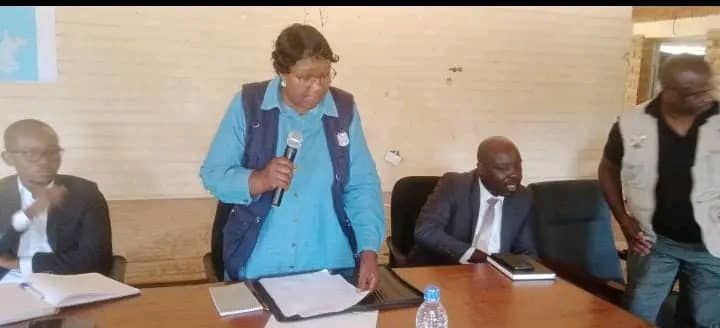By Burnett Munthali
The Malawi Electoral Commission (MEC) has emphasized the need for electoral stakeholders to work together in promoting awareness to the electorates for a credible 2025 tripartite elections.
This has been said in a series of interface meetings with the multiparty liaison Committee members held in some country’s district councils on Monday.
As the MEC chairperson Justice Dr. Chifundo Kachale was in Ntcheu, some electoral commissioners were in Mangochi and Likoma district councils just to mention but a few.

Speaking at Likoma district council, Chairperson for legal services committee, Commissioner Caroline Mfune said MEC can administer credible elections when the electorates have full information about significant changes in the 2025 tripartite elections.
Mfune further said MEC is bringing awareness to unpack on board 50+1, change of dates, time, polling centers and constituency re-demarcation such that traditional chiefs, politicians, civil society and the media are fully aware of the new electoral arrangements.
Voter awareness is crucial for a healthy democracy, as informed and engaged citizens are more likely to participate in elections and make informed choices. Here are some key ways to promote voter awareness i.e., Election Dates and Deadlines, Community Outreach, Social Media and Online Platforms.
Elections require citizens to participate in the electoral process and to make an informed decision when voting. Elections imply decision-making, and democracy implies actively participating. Decision-making and active participation are based on information, skills, values and practices, which have to be provided to the entire voter population. Voter information, awareness and education campaigns provide voters with the knowledge, skills and values to do this.
In every election, voter and civic education are necessary to ensure that all constituents—men and women alike—understand their rights, their political system, the contests they are being asked to decide, and how and where to vote. For an election to be successful and democratic, voters must understand their rights and responsibilities, and must be sufficiently knowledgeable and well informed to cast ballots that are legally valid and to participate meaningfully in the voting process. Voter and civic education are even more critical in post-conflict countries, where political situations may be volatile and where elections may have an unprecedented impact on the countries’ future.


